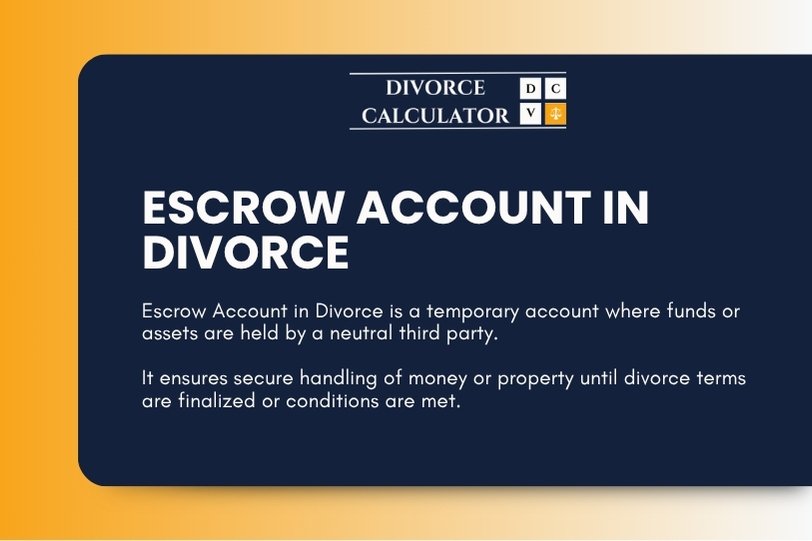When handling large transactions, especially in real estate or online marketplaces, safety and trust become top concerns. An escrow account acts as a neutral holding place for funds, ensuring both parties fulfill their obligations before money changes hands. This simple service can make complex or high-value deals much more secure for everyone involved.
We often hear about escrow during home purchases, but it’s also used for other major sales and business deals. By understanding how escrow accounts work, we can better protect our investments and avoid potential disputes.
Key Takeaways
Escrow accounts function as neutral third-party holding systems for money or assets during transactions. We rely on these accounts to increase trust and reduce risk for both buyers and sellers.
We commonly encounter escrow accounts in real estate deals, online marketplaces, and some loan arrangements. These accounts help confirm that specific conditions are fulfilled before funds change hands.
Benefits of Escrow Accounts:
- Security: Our funds are protected until contractual terms are met.
- Transparency: All parties know the status and requirements at every stage.
- Dispute Minimization: We have a clear process for handling disagreements.
Not all transactions require escrow, but when significant sums or legal agreements are involved, using escrow becomes a prudent step. The cost for escrow services varies, usually as a small percentage of the transaction amount.
| Feature | Description |
|---|---|
| Neutrality | Third-party holds and releases funds/items |
| Usage | Common in large or complex transactions |
| Security | Reduces the risks of fraud or default |
Escrow providers can include banks, legal firms, or specialized escrow companies. We should always ensure our provider is reputable and regulated.

Why It Matters In Divorce
When we go through a divorce, handling finances often becomes complex and stressful. An escrow account acts as a neutral space where assets or funds are safely held until both parties fulfill the terms of their agreement.
This process helps us avoid disputes about who gets what and when. By using an escrow account, we can ensure that payments like alimony, property division, or child support are made according to the court’s orders.
Key advantages of escrow in divorce:
- Neutral third-party holds assets
- Reduces the risk of missed or contested payments
- Protects both parties’ interests
For example, if property is being sold, the proceeds can be held in escrow until both parties sign the required documents. This ensures fairness.
Comparison Table
| Without Escrow | With Escrow |
|---|---|
| Higher risk of disputes | Lower risk of disputes |
| Delayed or missed payments | Payments managed by a third party |
| Less transparency | Clear tracking of funds |
Using an escrow account gives us peace of mind because all transactions are documented. This transparency is especially valuable when emotions run high and trust may be lacking between divorcing spouses.
Real-Life Examples
We often see escrow accounts used in real estate transactions. For example, when we purchase a home, our down payment and earnest money are held in escrow until all conditions, such as inspections and title clearance, are satisfied.
In online marketplaces, escrow services protect buyers and sellers. If we buy a high-value collectible, the payment goes into escrow. The seller ships the item, and once we confirm receipt and condition, the funds are released.
Table: Escrow in Different Situations
| Scenario | Escrow Holds | Released When |
|---|---|---|
| Real Estate | Down payment, closing funds | Deal closes, legal criteria met |
| Online Marketplace | Buyer payment | Buyer confirms delivery |
| Legal Settlements | Settlement money | All terms of agreement are fulfilled |
Sometimes, escrow accounts are used during mergers and acquisitions. Funds are kept in escrow until all regulatory approvals and contractual obligations are met.
In rental agreements, we may encounter security deposits held by a neutral party. These deposits are only released after we move out and the property is inspected.
How States Handle It
Escrow accounts are regulated at the state level, and requirements differ widely in terms of who oversees them, what disclosures are mandated, and how funds must be safeguarded. Key differences impact licensing, interest payments, and the circumstances under which escrow is required.
New York
In New York, escrow accounts are primarily governed by strict state banking laws and real estate regulations. Banks and licensed escrow agents must comply with rigorous record-keeping and reporting standards.
We see that interest earned on escrow funds for residential mortgage loans must generally be credited to the borrower, except when the property has more than six units. The New York State Department of Financial Services audits compliance frequently and enforces penalties for mishandling.
Attorneys often hold escrow in real estate closings, and trust account rules are detailed in state bar association guidelines. Misuse of funds can result in license revocation, fines, or criminal prosecution.
California
California regulates escrow accounts through both the Department of Financial Protection and Innovation and the Department of Real Estate. Real estate escrow agents must be licensed, and the state requires annual audits by certified public accountants.
In California, escrow companies are prohibited from disbursing funds until all conditions of the transaction are fully met. The Escrow Law mandates separation of client funds from operating accounts, and violations can lead to license suspension or monetary penalties.
For mortgage-related escrows, state law does not require lenders to pay interest on most escrow accounts, unless specifically agreed upon in writing with the borrower.
Texas
In Texas, escrow accounts for real estate transactions are generally managed by title companies under regulations from the Texas Department of Insurance. The process is heavily standardized, with clear guidelines for documentation, fund disbursement, and reconciliation.
Lenders are not required to pay interest on escrow accounts unless the account is for a tax lien transfer loan. The law also prevents certain overcharging practices by limiting how much can be collected for taxes and insurance.
For earnest money, Texas real estate brokers must hold the funds in a separate, non-interest-bearing trust account. Significant penalties apply for co-mingling or misappropriating escrow funds.
Florida
Florida’s escrow accounts are regulated by both the Florida Office of Financial Regulation and the Department of Business and Professional Regulation. In real estate, both attorneys and licensed title agents can manage escrow, but they must follow strict rules for account management and reporting.
State law generally requires escrow deposits for residential sales, and earnest money must be deposited in a non-interest-bearing account unless both parties agree otherwise. The Real Estate Settlement Procedures Act (RESPA) overlays federal protections for borrowers with Florida-specific rules.
Trust account violations—such as failing to promptly deposit funds or inadequate recordkeeping—can result in license revocation and administrative fines.
Tips If You’re Dealing With Escrow Account
When we manage an escrow account, it’s important to read all documentation carefully. We should check for any fees, deadlines, or terms that affect our financial responsibilities.
Let’s make a habit of monitoring account statements regularly. Identifying discrepancies early helps us avoid potential issues.
We need to ensure our payments are made on time, as delays could cause penalties or impact our credit. Setting reminders or using automatic payments can help us stay on track.
Key Tips in a Quick List:
- Request and review itemized statements.
- Communicate with the escrow agent if we have questions.
- Document all correspondence for our records.
It’s helpful to understand how and when funds are released. This prevents confusion and allows us to plan according to the timeline.
If we’re unsure about any terms or requirements, we should consult with a financial adviser or legal professional. This ensures we know our obligations and rights.
Staying organized and proactive helps us maintain control of the escrow process. Using these approaches, we can keep our transactions smooth and transparent.
Frequently Asked Questions
Escrow accounts serve specific roles in real estate, banking, rentals, and personal finance. These accounts have defined procedures for setup, withdrawal, and refund, each subject to particular rules and circumstances.
How is an escrow account used in real estate transactions?
In real estate, we use escrow accounts to hold funds from buyers until key steps—like inspections, title searches, and mortgage approvals—are completed. The funds are disbursed only when all contract conditions are satisfied.
What are the procedures for setting up a personal escrow account?
To set up a personal escrow account, we typically contact a licensed escrow agent or financial institution. They require us to provide identification, sign an agreement outlining terms, and deposit the agreed funds.
What are the typical rules governing escrow accounts in banking?
Most banks require us to maintain a designated balance and may set conditions on deposits and withdrawals. Regulations ensure that the funds remain separate from the institution’s own assets and are only used for specified purposes.
How can one access funds from an escrow account for rental purposes?
For rental situations, we usually access escrowed funds when lease obligations—such as security deposits—are met according to the contract. Release of funds generally requires written authorization from both tenant and landlord, or an order by a relevant authority.
Under what circumstances do you receive a refund from an escrow account?
Refunds from escrow accounts occur when surplus funds remain after all obligations are fulfilled or if the transaction is canceled under the terms of the agreement. Funds are returned only after verifying compliance with the escrow contract.
What are the implications of withdrawing money from an escrow account?
Withdrawing money prematurely can lead to breach of contract or loss of escrow protection. We must adhere strictly to the conditions set forth in the escrow agreement to avoid penalties or legal complications.



